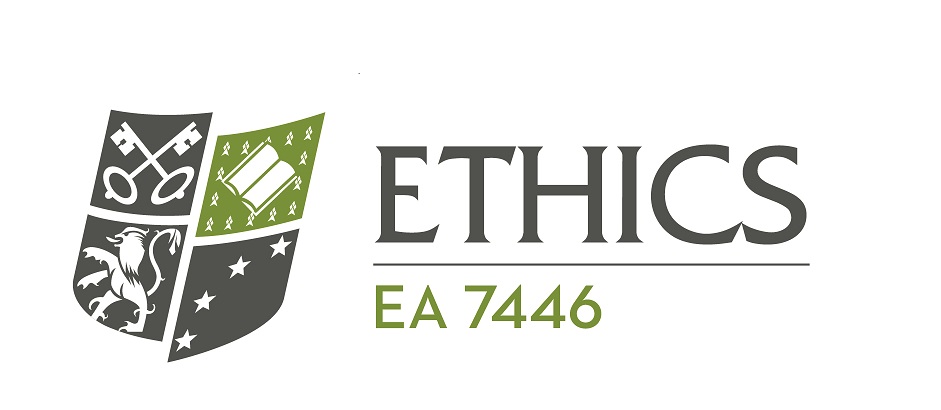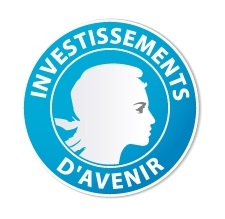The historical commitment to ethics at the Université Catholique de Lille affects every aspect of its service to students and their families, civil society, businesses, associations, and patients. It is reflected in our current ambition to be recognized internationally for multidisciplinary research that places human purpose at the heart of development and innovation.
A history of research in ethics
Nearly all the institutions that constitute the Université Catholique de Lille are implicated in ethics research, capitalizing on over 30 years of research activity on ethical issues related to anthropological and socio-economic changes in the contemporaryworld.
The Department of Ethics, created in 1984, made it possible to structure this research.
This department became ETHICS - EA 7446 in 2016, a multidisciplinary research unit of the Université Catholique de Lille that hosts teacher-researchers, and post-doctoral and doctoral students in philosophy, economics, and sciences.
The work of applied ethics concerns human life and its place in contemporary society and the environment. It covers varied topics including:
- artificial intelligence,
- digital healthcare,
- influence,
- cooperation with and between differently-abled persons,
- business ethics,
- economic and financial ethics,
- end of life,
- the family and the contemporary subject.
New socio-economic models
In close connection both to ethical questions and to the University’s projects on energy and social transition, much research concentrates on new socio-economic models that characterize the evolution of the contemporary world:
- Circular economy and its relation to natural resource management and to sustainable development;
- the economy of functionality, based on buying use of products rather than products themselves,
FGES, ICAM-Lille, IÉSEG, Yncréa Hauts-de-France, EDHEC, and the HEMISF4IRE Design School have joined forces to create a Chair in “Business with Social Impact” dedicated to social business. By giving students, businesses, and society the opportunity to engage in economic activity and in reliable and sustainable alternatives, the Chair aims to develop a more sustainable, solidarity-based economy, geared to human needs, particularly of the most vulnerable.
Awareness, training, research, and business creation and incubation are at the heart of the Chair’s activities, in connection to work supported by the Hauts-de-France Region in the field of economic, social, and environmental transition within the framework of the SoBizHub network.
 Sensibilisation, formation, recherche, création et incubation d’activités et d’entreprises sont au cœur des activités de la chaire, en lien avec les travaux soutenus par la Région Hauts-de-France dans le domaine des transitions économiques, sociales et environnementales dans le cadre du réseau SoBizHub.
Sensibilisation, formation, recherche, création et incubation d’activités et d’entreprises sont au cœur des activités de la chaire, en lien avec les travaux soutenus par la Région Hauts-de-France dans le domaine des transitions économiques, sociales et environnementales dans le cadre du réseau SoBizHub.
More information on the Chair (in French):
Ethics at the heart of pedagogy

180 teaching units related to ethics across the University
An experimental approach to ethics: the EPHEMER project
An experimental approach to ethics: the EPHEMER project
Launched in August 2017, the EPHEMER project (Éthique et Pédagogie Holoptique pour un EnseigneMEnt en Réseau, Ethics and Holoptic Pedagogy for Networked Instruction in English) advances an innovative pedagogy of ethics based in digital and experimental methodologies. Students in the course are invited to engage in “experimental games” involving ethical issues and both individual and group choices in varied, adaptable situations.
Co-constructed using the experimental methodologies of the the Anthropo-Lab, the project makes it possible to link different ethical questions associated with specific situations studied. In the course of their “experimental games” the students see not just their own individual decisions but those of the group as a whole. This opens the way to the ethical questioning of decisions, both individual and collective.
3years of support from the National Research Agency (ANR)
7 doctoral and post-doctoral students recruited
900 students already involved
16 planned experiments over the next two years
More than 900 students from different backgrounds (communication studies at ISTC, applied taxation at EDHEC, psychology at the Humanities faculty) have already participated, and 16 experiments are planned over thee next two years in a variety of courses offered through the Université Catholique de Lille, including the faculties, ISTC, EDHEC, and IÉSEG.
The University’s largest educational and scientific project, EPHEMER is led by ETHICS as part of a consortium bringing together the Cath olic Institute (including ISTC), EDHEC, and IÉSEG.
olic Institute (including ISTC), EDHEC, and IÉSEG.
The EPHEMER project is supported by the National Research Agency (ANR) with 1 million euros over 3 years (PIA DUNE, 2017-2020).

Appel à communications
Colloque EPHEMER "Ethique, pédagogie et expérimentation"
23 et 24 mai 2019





